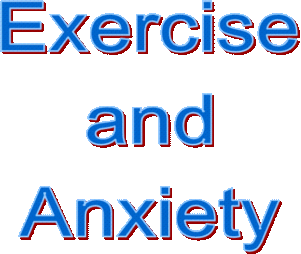
Muscle twitching is a terrifying topic for many people because twitching muscles is a symptom of a killer disease.
Muscle twitching is very common, affecting millions of people, but ALS, the disease in which muscle twitching is a symptom, is extremely rare.
Nevertheless, a person with twitching muscles may become vulnerable to a terrifying hypochondria in which he or she thinks they have fatal ALS whenever a muscle twitches.
But muscle twitching is a fact of life.
As I type this, my triceps muscle is twitching away. I pulled my sleeve up and watched. Boing, boing, boing, like there was a beating heart below my triceps muscle.
But am I scared I might have ALS?
No. It’s no coincidence that two days ago, I put my triceps muscles through a punishing weightlifting routine.
Two days out from grueling weight workouts often results in strange things, like muscle twitching.
If your muscles are twitching, ask yourself if one or two days ago, you worked that muscle at the gym.

Shutterstock/Jasminko Ibrakovic
“Above all, fatigue is the reason for the muscle twitching,” explains Kevin Plancher, MD, a leading sports orthopedist and sports medicine expert in the New York metropolitan area.
“The muscles are most likely overworked at this point. The nerves that send impulses to the muscles become fatigued as well, which can cause erratic firing of the muscles.”
He adds: “Cramping and twitching can result from increased amounts of sweating that follow exercise.”
The fact that you can see the twitching is NO cause for concern. Of COURSE you can see it; why wouldn’t you be able to see it?
And it could be a good thing.
You can train your mind to accept it, and then perceive it as cool — as in it feels neat when muscles twitch, especially fatigued muscles that are drained from exercise.
When my right hamstring was injured from sport, it would sometimes twitch after being exercised, and it sure felt good !
The twitching was like a little massage machine inside the hamstring, soothing it.
What makes muscles twitch?
Many things. But at the top of the list are two things:

Muscles will twitch even more if your anxiety is related to ALS.
People who suffer from this hypochondria will typically report that one day, a twitching muscle was becoming annoying.
So they googled muscle twitching and several ALS links came up.
The link descriptions clear-out say muscle twitching is a symptom. The person panics and suspects he or she has ALS.

Freepik.com, jcomp
They then visit the ALS site and read that muscle twitching is one of three chief ALS symptoms. The fear intensifies.
Convinced they might have ALS, the person becomes overwhelmed with anxiety, and within minutes, their localized muscle twitching has “spread” throughout their entire body.
Has this happened to you?
Realize that ALS does not instantly “spread.” Though muscle twitching is an ALS symptom, the ALS websites often fail to add a very crucial detail:
This symptom is preceded by, and then accompanied by, “clinical” muscle weakness.
A fearful person who hits a website that actually includes this detail, however, won’t necessarily be relieved, because once they read this, they’ll then suddenly feel “weakness” in a twitching part of their body.
They’ll stand up and test it out, and sure enough, suddenly the area feels weak. This experience is called perceived weakness.
This is how the mind works.
But ALS weakness is serious; it’s not just a feeling of weakness or a perceived weakness.
You can perceive weakness in your leg all you want, but you’ll still be able to trot up a flight of stairs or run across a parking lot.
If you have ALS weakness, those stairs will be impossible to climb without struggling.
Exercise ranks high on causes of muscle twitching because lactic acid collects in the exercised area, and lactic acid and other byproducts of exercise can cause nerves to spontaneously fire away.
In layman’s terms, the nerves are still buzzed from the exercise, and this buzzing can manifest itself one or two days after the exercise.
Anxiety causes twitching because fear signals to muscles to get ready for a battle.
The muscles rev up their engines and this causes twitching.
The muscles prepare for flight or a fight.
This natural neurological response helped humans survive during primitive times; ancient man’s muscles needed to react quickly to an urgent situation (hissing snake, approaching animal, unexpected chance to catch a rabbit for food, etc.).
Other causes of muscle twitching include electrolyte imbalance, calcium and magnesium deficiency, medications, Lyme disease and dehydration.
ALS ranks at the bottom of the list.
 Dr. Plancher is founder of Plancher Orthopaedics & Sports Medicine, and lectures globally on issues related to orthopedic procedures and sports injury management.
Dr. Plancher is founder of Plancher Orthopaedics & Sports Medicine, and lectures globally on issues related to orthopedic procedures and sports injury management.
 Lorra Garrick has been covering medical, health and personal security topics for many years, having written thousands of feature articles for a variety of print magazines and websites. She is also a former ACE-certified personal trainer.
Lorra Garrick has been covering medical, health and personal security topics for many years, having written thousands of feature articles for a variety of print magazines and websites. She is also a former ACE-certified personal trainer.
.
Top image: Shutterstock/designer491–
Sources:
mayoclinic.com/health/amyotrophic-lateral-sclerosis/DS00359
anxietycentre.com/anxiety-symptoms/muscle-twitching.shtml
ALS Anxiety, Muscle Atrophy and Twitching Conquering This Stress













